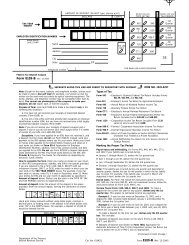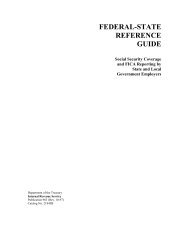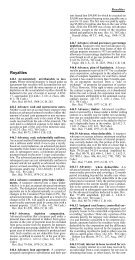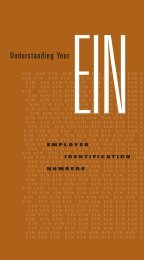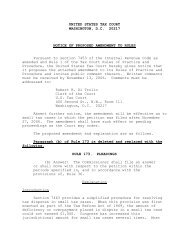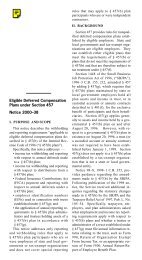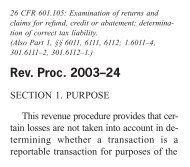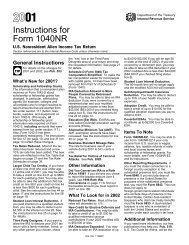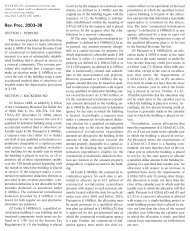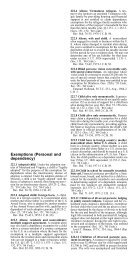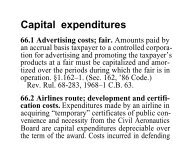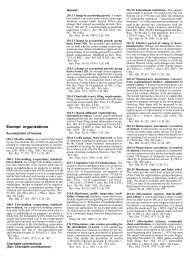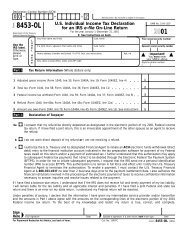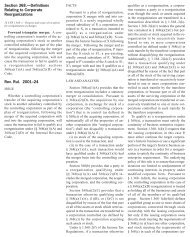Auto Dealerships - Audit Technique Guide - Uncle Fed's Tax*Board
Auto Dealerships - Audit Technique Guide - Uncle Fed's Tax*Board
Auto Dealerships - Audit Technique Guide - Uncle Fed's Tax*Board
You also want an ePaper? Increase the reach of your titles
YUMPU automatically turns print PDFs into web optimized ePapers that Google loves.
Part 3<br />
Aftersale Financial Products<br />
Chapter 10<br />
<strong>Auto</strong>mobile Dealership Aftersale Financial Products<br />
Introduction<br />
The automotive aftermarket contemplates products, tangible and intangible, the consumer may<br />
add to the new vehicle during or after consummation of the sale. This aftermarket is substantial<br />
and includes, but is not limited to, products such as financing, wheels, extended service contracts<br />
and service.<br />
This section focuses on the sale of <strong>Auto</strong>mobile Dealership Aftersale Financial Products as they<br />
relate to the sale of new and used vehicles. Products sold primarily include extended service<br />
contracts, credit life insurance and credit accident and health insurance. Though references in this<br />
section concern new vehicles, these products have substantially similar application to used<br />
vehicles. As a "Living Document" we would like to see others extend the discussion set forth in<br />
this <strong>Guide</strong> to include other aftermarket products.<br />
The products discussed in this section are referred to as "aftersale financial products" to give<br />
clarity to the discussion. "Aftersale" is substituted for "aftermarket." Also, these products are not<br />
referred to as "insurance" products because such characterization denotes a legal conclusion that<br />
may be adverse to Internal Revenue Service interests. Some of the products discussed in this<br />
section are disguised and sold as insurance, but in reality are not insurance. The non-insurance<br />
aspect of these products is a basis of adjustment the Service seeks to establish.<br />
Extended Service Contracts<br />
Motor vehicle dealers sell extended service contracts (also known as mechanical breakdown<br />
contracts or multi-year service warranty contracts) for used cars and as a supplement to the<br />
standard manufacturers’ warranty for new cars. The plans cover repairs for specified components,<br />
and may be purchased for a variety of terms and miles. The minimum term is usually 2 years and<br />
the maximum is usually 7 years. The charge for the plan may be separately stated on the vehicle<br />
sales contract, or there may be a separate contract for the plan.<br />
Regardless of what type of plan is sold, an administrator usually handles administrative functions<br />
and pays claims. In addition, the administrator determines the "cost" of the plan and provides a<br />
cost schedule to the dealers. Based on the cost schedule, dealers establish the selling price of the<br />
service contracts and retain a portion of the price as commission. The commission amount is<br />
usually reported as income in the year the contract is sold. Treatment of the remainder of the<br />
selling price varies depending on what type of plan is sold.<br />
10-1



